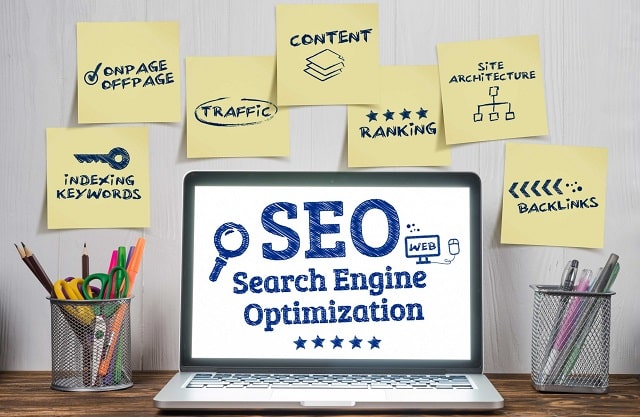
Thinking of creating a website for your business? That is great! Not only will it increase brand awareness but it will also allow you to target a wider audience.
If anything, you just have to make sure that people can find your site. After all, it won't mean anything if you have no organic traffic!
That is where search engine optimization, also known as SEO, comes in. Put it simply, it is a process that increases your website’s visibility on different search engines like Google.
How does SEO work? What do you have to do? Want to know what makes search engine optimization viable? If so, you are on the right page.
Keep reading for a mini SEO 101 guide!
What is SEO?
Search engine optimization (SEO) is a process in which you optimize your website's content so that it’s more discoverable on search engines. The goal is to get unpaid, organic traffic to your site from Google, Bing, Yahoo, and other top search engines.
That way, you’ll generate more potential business leads. Given that, SEO should always be part of your marketing efforts.
Need help planning an effective SEO strategy? You can always hire a search engine optimization professional!
How Does It Work?
Search engines want to provide the best content for their users. To do this, they’ll crawl or scan different websites—this allows them to better understand the site.
From there, they'll rank your website based on different things. For example, it’ll take into consideration how easy it is to read and navigate.
Ultimately, that allows them to deliver better results when an individual is searching for a specific keyword or phrase.
SEO 101: 9 Tips For Improving Your Site's SEO
Want your website to rank higher on the search engines? Here are a few things that you might want to consider for beginner SEO.
1. Page Speed
Page speed is important when it comes to ranking your site. After all, search engines want to improve their users’ experience—it’d make no sense for them to show a slow-loading web page.
Want to speed up your site? There are a few things that you can do. For example, you can optimize your images.
Compressing your HTML or CSS can also help—it’ll significantly reduce the amount of time that it’ll take to download the files.
2. Use Alt Tags
Always use alt tags for your visual and video media. You want to show that they’re relevant to the main content.
That way, your page will get a relevant boost, which will help with its ranking. Not to mention that search engines will be able to better understand what the content is about.
3. Provide Useful Content
Make sure that your content is relevant and high quality. Remember, your goal is to provide value to your visitors—that way, they’ll be more likely to stay on your site.
Why is this important? Search engines use many ranking factors in their algorithms–dwell time (the amount of time that you spend on a web page after clicking into it) being one of them.
4. Use Header Tags
No one wants to read a wall of text. That’s why you want to use headers—it’s a nice way to break things up.
Your readers should be able to figure out what the content is about just by scanning them. Don’t forget to include keywords in the header tags as well as they're rated more heavily.
5. Broken Links
Your site shouldn’t have any broken links. If anything, that’s a sign that your site is old and neglected, which can have a negative effect on your ranking.
How can you tell if there are broken links? There are many tools that you can use—just search around!
There’s no need to go through each and every one of them manually.
6. Outbound Links
Consider linking out to authority sites on your pages—it’ll make your content more useful and relevant. Not only that, but it’ll tell search engines that you’re a trusted resource, which can improve your SEO ranking.
Keep in mind, however, that you don’t want to add too many links. It can make it difficult for users to read through and it can be distracting.
7. Mobile Optimization
Nowadays, many people surf the web on their mobile phones. Given that, it only makes sense that you’d want to optimize your site for these devices.
In fact, search engines can penalize your website if they’re not mobile-friendly. That is, they can bump down their ranking—and that’s the last thing that you want.
8. Navigation
Make sure that your site is easy to navigate. If your visitors can’t find what they need, they’ll likely leave, which will contribute to a high bounce rate.
You want them to be able to accomplish their goals so that there’s a higher chance that they’ll come back. Remember, repeated visits can improve your ranking on search engines.
9. Social Sharing
Social sharing can influence your SEO rank. Given that, it’s a good idea to install social sharing buttons on your website–that way, users will be able to share your content easily.
Depending on the platform that you're using, you may be able to just use a plug-in to help your site SEO!
Understanding SEO 101
And there we have it—a mini SEO 101 guide. As you can see, it's super important if you want your website to rank on search engines like Google. Why not give some of the tips that we have mentioned a try and see how that goes?
For more similar posts, make sure to check out the rest of our company site. For more SEO 101 tips for search engine optimization beginners, visit the SEO and Blogger Outreach sections of our business blog!
